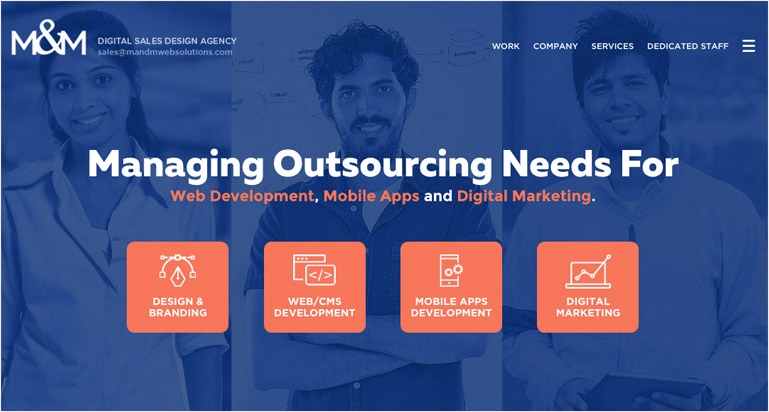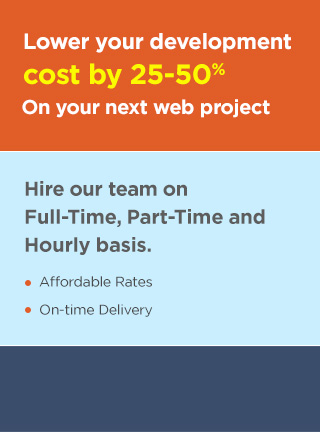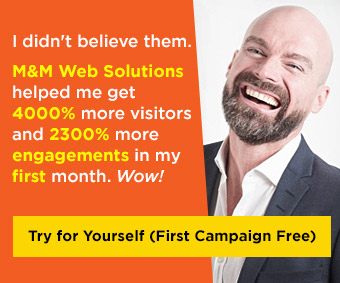Today, businesses need to have a strong online presence, which is impossible to achieve without a well-designed website. In an industry where the metrics for a good website changes frequently, there are simply too many advices we tend to exchange with clients and peers. However, not every piece of advice is worth giving a shot. In fact, a lot of advice can be misleading, at best—and, disastrous, at worst. We have compiled a list of 10 common advice that make a recipe for disaster and you make mistakes in your online business.
-
01. Ask a friend to do it for you

Well, this isn’t really a bad advice as long as the friend in question is technically skilled and has an artistic eye. But, most people consider roping in a friend for one big reason—it’s going to be cheap and, perhaps, even free! Unfortunately, the reality is, there’s no such thing as a “free lunch” when it comes to getting a good website that really showcases what you do, fetches more leads, and converts them into paying customers. This is why, if you’re serious about your business’ online visibility, you should consult a reputed web design company who can guide you in the right direction.
-
02. Small business don’t need a website

In today’s digital age, there’s only one thing worse than having a poorly-designed website, and that is having no website at all. Modern consumers are spending more time online looking for products/services they need. You can only imagine the disservice you’d be doing to your business by not being you’re your customers are.
-
03. Create your website for your taste

That’s a valid point as long as you are trying to please yourself. A big mistake many business owners make is getting done what they think is appealing enough, quite overlooking the fact that the website needs to attract, engage, and interact with their target audience or potential customers, not themselves.
-
04. Great design makes great website

Great design is an integral factor, but not the be all and end all of a good website. Having an aesthetically pleasing website with the latest design elements is a good thing. But, if it’s not built around your business objective and without keeping user experience (UX) in mind, even the best design won’t be financially rewarding.
-
05. Cookie cutter websites work just fine
As a matter of fact, they don’t. But what exactly are cookie cutter websites and how to know if you have one? That’s fairly simple. If you can’t tell the difference between your website and a dozen of other websites except the different logos and text, you have what is called a cookie-cutter website. Why it doesn’t work? Because if your website fails to reflect the personality of your business and products, it won’t be noticed. While a generic website might be okay if you’re a small business on a shoestring budget, you should upgrade to a more personalized website as soon as you can.
-
06. Other people are doing it so you should too
You should not opt for a website design or a redesign just because others are doing so. To get the optimum benefits from your website, it’s imperative that you look at web design through the lens of your own business model.
-
07. SEO isn’t important until the website is live

This is one of the worst possible advice in the space of digital marketing. SEO should be ideally incorporated at every stage of your website’s design, rebuild and launch in order to maintain a healthy rank on search engine results. Two important points to keep in mind are:
- Do a keyword research and utilize this information to determine URL structure, H1 & H2 tags and content on the website.
- Complete the input for a minimum of 30 pages of page titles and meta descriptions on the site’s front-end prior to the launch.
-
08. You don’t need to invest a lot on web design

Like almost everything in life, you get what you pay for when it comes to getting your website up and running. If you don’t put a considerable budget into your website’s design and development, it’s difficult to get the conversion focused website.
-
09. Your website does not need to be updated regularly

Search algorithms change frequently and if your website fails to keep pace with these changes, it will quickly become ineffective. Besides, even if you have created awareness among a set of your potential customers, what about the ones that don’t know about you?
For all these reasons, it’s important to keep your website up-to-date and revamp it every two to three years. -
10. The designer knows the best

Many business owners assume that their designers know what they are doing and don’t question their decisions. This is not always a smart thing to do. To understand if your website echoes your business goals and has been designed in a way that it will convert at its highest potential two to three years down the road, it’s important you educate yourselves on the basics of SEO. Or, at the very least, use free tools like Google Analytics and Google Webmasters tools to monitor your site’s performance.












